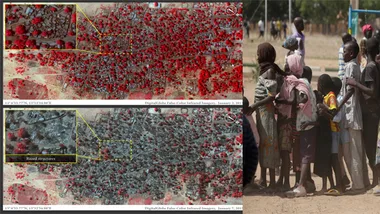Imagine waking up one day and being forced to flee from your home. Imagine losing everything you’ve ever had and leaving behind everything you’ve ever known in a bid to keep just one thing: your life.
Ahead of the World Refugee Day the UNHCR held a breakfast hosted by Sandra Sully at Sydney’s The Westin hotel in Martin Place, more than 350 guests drawn from the Sydney business community and refugee supporters came together to celebrate the courage and resilience of refugees worldwide.
Among the key speakers at the event were actor Marta Dusseldorp and Ian Chappell and Adelaide United winger and former South Sudanese refugee Awer Mabil.
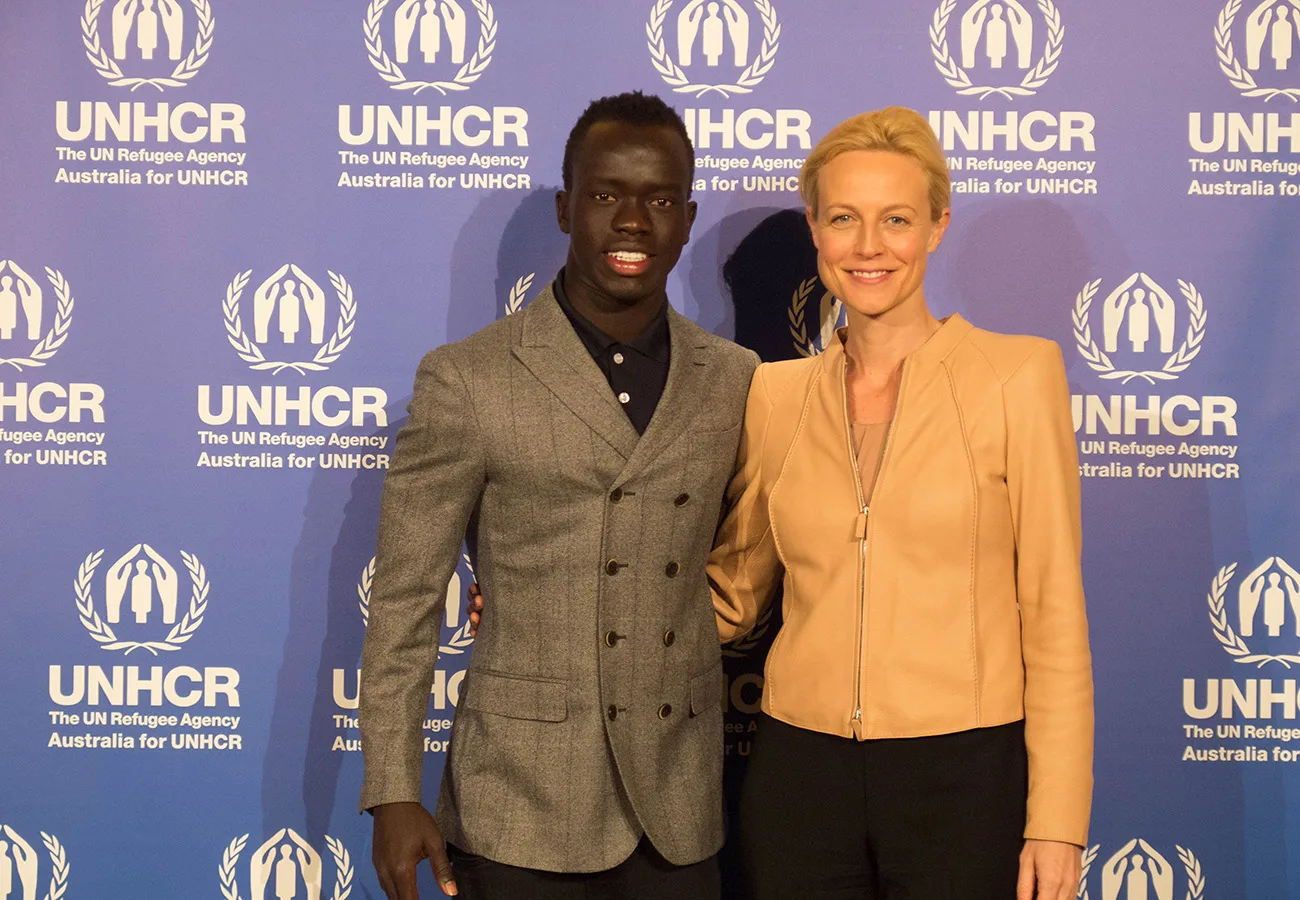
Newly appointed UNCHR Special Representative Marta Dusseldorp with Adelaide United winger and former South Sudanese refugee Awer Mabil.
In her address, the national director for UNCHR Australia’s Naomi Steer talked of imagination being the one defining quality that separates a compassionate person with an uncompassionate one.
Imagination can separate a person who can empathise with a tragic plight that someone faces, for no other reason than the circumstances of their birth, and someone who cannot muster any consideration at all.
Thankfully newly appointed UNCHR Special Representative Marta Dusseldorp is the former. As an actress she has imagination in spades and as a human being and mother she is awfully considered when it comes to what she calls the “world emergency” that is facing refugees around the globe.
With more than 60 million people currently classed as refugees on this planet due to war and other conflicts Dusseldorp used her address at Friday morning’s breakfast to draw attention to those in crisis.
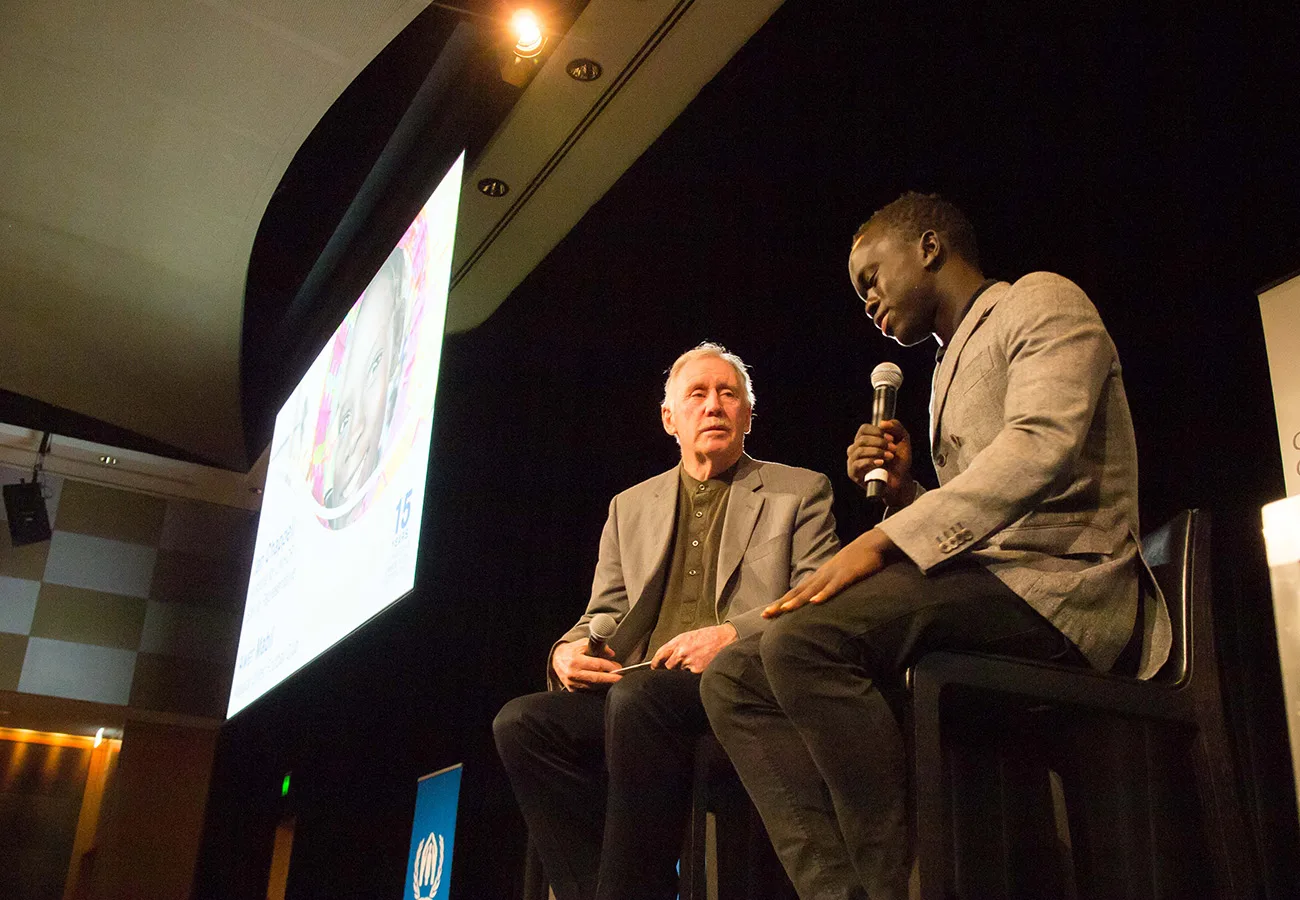
Cricket legend Ian Chappell hosts a Q&A with Awer.
Reflecting on her own life in Australia, where she is a well-known accomplished theatre and TV actress currently starring in Channel Seven’s A Place to Call Home as holocaust survivor Sarah Adams,
Marta also talked about the real life role she plays, a mother to her two daughters, aged five and eight.
“I’m a mum, I’m a daughter, a wife, a sister and also an actress,” Marta said as she introduced herself. She then went on to describe her everyday life as “very real and very ordinary.”
Marta talked about the story of a little boy named Ibrahim.
Ibrahim is a 10-year-old Nigerian boy whose father was murdered in front of him by militants. Those same militants then turned on him, attacking him with machetes before burying him alive and leaving him for dead in the ground. Ibrahim only survived because his 11-year-old sister, Larama dug him out from where he was intombed and then carried his injured and bleeding little body on her back for two weeks before crossing a border into neighbouring Cameroon.
While Ibrahim survived the militia raid on his village it is safe to say many others he knew didn’t. Images of his smiling and happy face playing with a makeshift soccer ball were flashed up on the screens around hotel and the sniffles from the audience were audible.
“It may be a whole generation that are losing their understanding that living should be free and ordinary,” Marta said of Ibrahim and his sister.
“Their only hope is that someone will stop and care enough to give them a chance to start somewhere new.”
“UNHCR are doing this on the ground in Nigeria where 1.8 million people are internally displaced. As we meet here this morning you know it makes you wonder what life has been changed forever.”
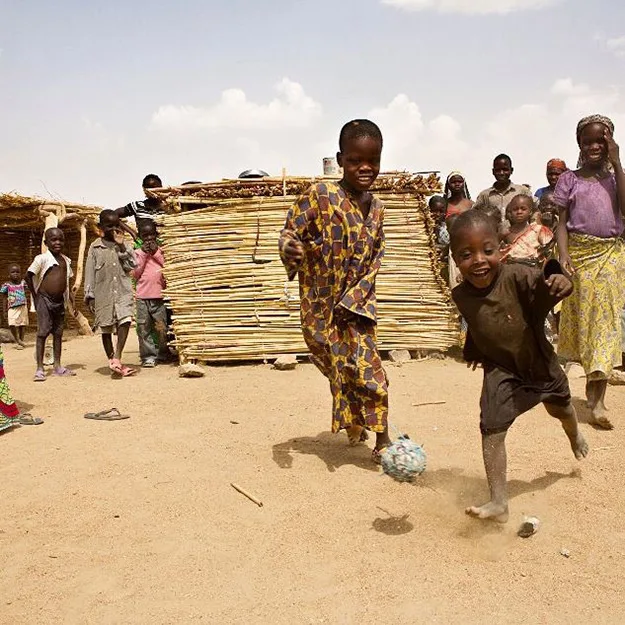
Nigerian refugee Ibrahim plays soccer with his little brother in Minawao camp, Cameroon. PHOTO: UNHCR Instagram.
In sit down with The Weekly after her address Marta spoke of the importance of telling her own kids how lucky they are to grow up in a country like Australia.
“Children are like sponges so they absorb collective happiness and collective grief,” she said. “They pick up more than we realise which is why it’s so important that kids shouldn’t be in refugee camps because it will affect the rest of their lives because they are just at their beginning point.”
Marta, who also talked of plans to travel out on missions with the UNHCR, says her involvement with the organisation will hopefully shine a light on the people who need help.
“It’s all about spotlighting and keeping it in the news because we need to remember that it’s not stopping, it’s getting worse,” says Marta.
“There’s a world emergency on, 60 million refugees, more than World War two. That is a world emergency, no?”
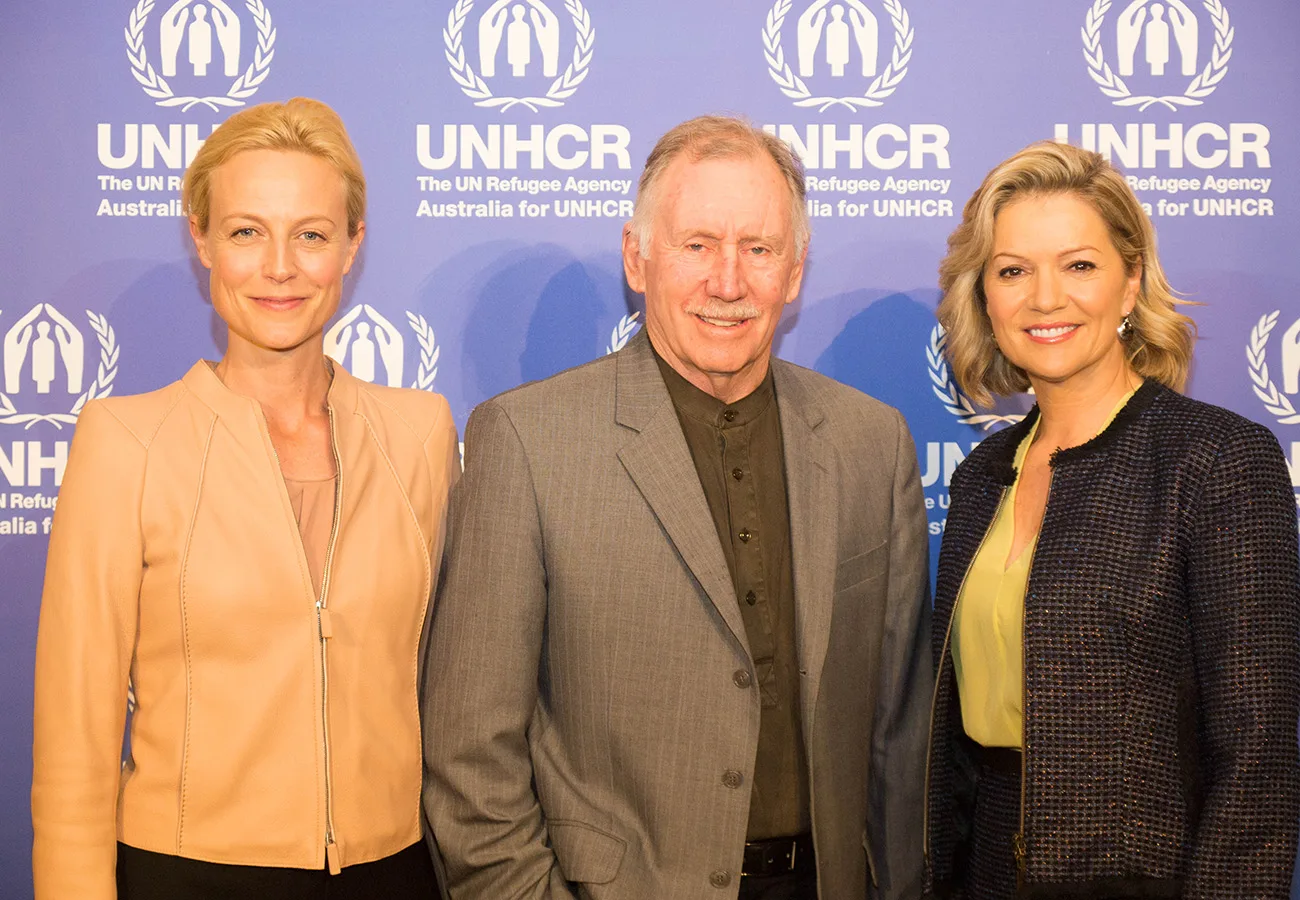
Marta Dusseldrop, Ian Chappell and the event’s MC Sandra Sully.
Funds raised by the World Refugee Day breakfast will support UNHCR’s Nigeria Crisis appeal, providing humanitarian protection, shelter, food and urgent medical assistance to some of the estimated 1.5 million Nigerians displaced within their own country, and almost 200,000 Nigerians who have fled across the border to Cameroon, Chad and Niger.
To learn more on the Nigeria crisis and to provide essential, lifesaving support, go to the UNHCR website or phone 1300 885 997.


